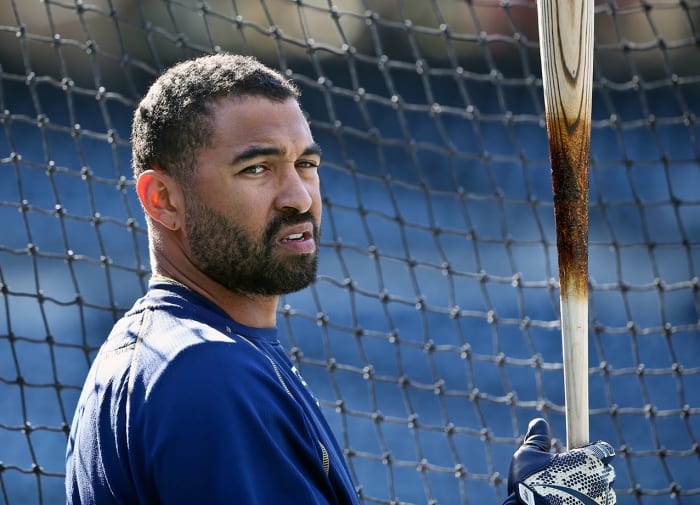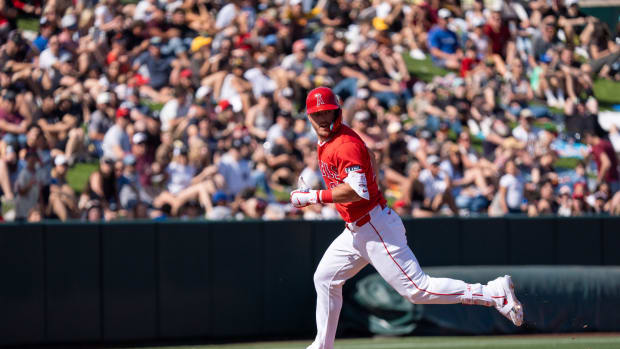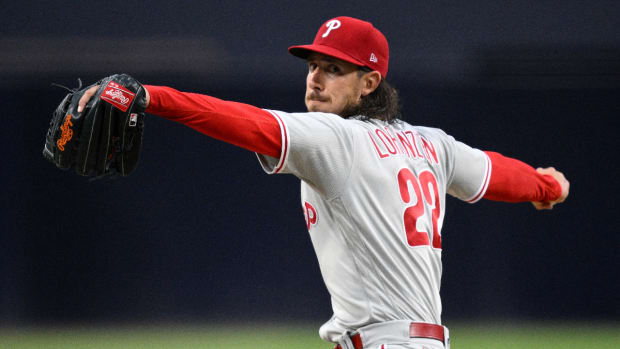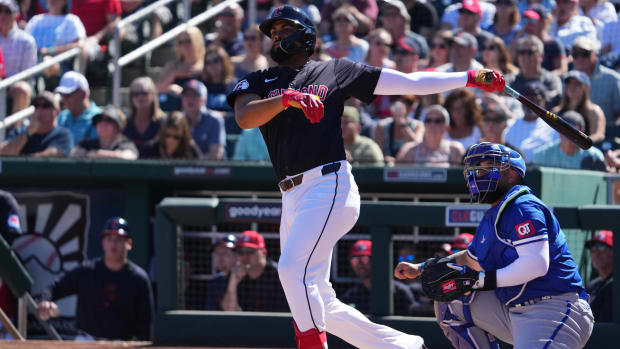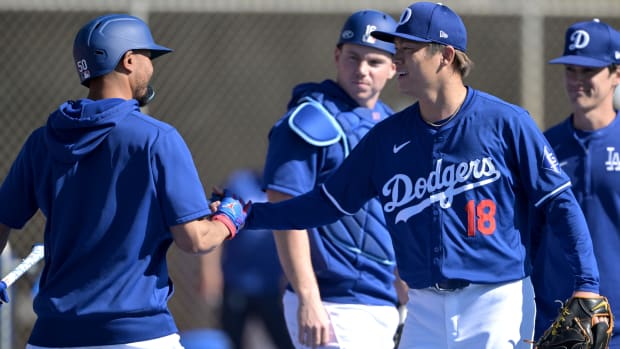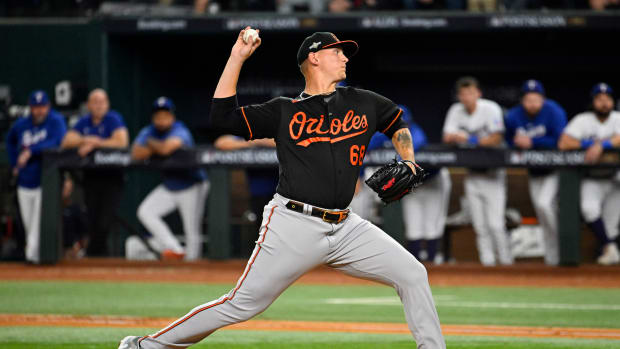Indians fail to sway Jonathan Lucroy, opening door for others
Late Saturday night it appeared that the Cleveland Indians had made a massive upgrade to their roster by acquiring catcher Jonathan Lucroy from the Brewers for a quartet of prospects. Sunday morning, Lucroy nullified the deal by invoking his no-trade clause. That doesn’t mean that Lucroy, who can only block trades to eight teams, won’t be traded to another team before Monday afternoon’s non-waiver deadline. Indeed, it seems likely that however things play out from there, the repercussions of Lucroy’s decision could extend far beyond what the Indians and Brewers do in the next 24 hours.
According to USA Today’s Bob Nightengale, the Indians largely torpedoed this deal themselves by both refusing to offer Lucroy any financial incentives for waiving his no-trade clause and refusing to guarantee that he would be their primary catcher in 2017. It seems that Cleveland’s plan for Lucroy next year was, inexplicably, to have him split time at first base and designated hitter while sharing catching duties with incumbent Yan Gomes, who has hit .204/.240/.359 since the start of the 2015 season, is a sub-par pitch framer and is currently on the disabled list with a separated throwing shoulder.
• MLB trade rumors: Latest news, buzz as deadline approaches
Lucroy’s contract includes a $5.25 million option for next season, so his response to Cleveland was to ask them to decline it, fully aware that he would be worth several times that on the open market, particularly after his strong performance this season and a potential playoff run with Cleveland. The Indians understandably refused that demand given the impressive quartet of prospects they had agreed to send to Milwaukee—catcher Francisco Mejia, shortstop Yu-Cheng Chang, centerfielder Greg Allen and right-hander Shawn Armstrong—but then told the Brewers it was up to them to get Lucroy to accept the trade. Given that Lucroy’s focus was on “long-term gain,” per the Milwaukee Journal Sentinel’s Tom Haudricourt, there was little the Brewers could do that would make sense for them or Lucroy and the deal collapsed.
As shocking as it is to hear that the Indians offered Lucroy absolutely nothing to approve the deal, it’s not surprising to learn that financial considerations scuttled the trade. According to our What’s He Really Worth formula (explained here), Lucroy, a strong defensive catcher who finished fourth in the National League Most Valuable Player voting in 2014 and has hit .300/.360/.484 (123 OPS+) thus far this season, projects to be worth $26.7 million next season and more than $100 million over the next five years. By way of comparison, the most expensive contract in Indians history was the four-year, $57 million extension they gave to Travis Hafner in late 2007, and even that contract was a bust.
• Nationals shore up bullpen with deal for All-Star closer Mark Melancon
Under the leadership of former Indians general manager and current Braves team president John Hart, Cleveland in the mid 1990s became the first team to understand that early-career extensions were preferable to big free-agent paydays, and the organization has continued in that mold ever since. On their current roster, Jason Kipnis, Corey Kluber, Michael Brantley, Carlos Carrasco, Carlos Santana, Josh Tomlin and even injured Gomes are all signed to extensions worth less than Hafner’s deal. In fact, all but Kipnis and Kluber signed for less than the $26.7 million Lucroy projects to be worth next year alone.
Even if Cleveland was willing to negotiate with Lucroy, there was little chance that it would have met his demands. As for the possibility of the trade being renegotiated with Cleveland agreeing to decline Lucroy’s option and sending a lesser package of prospects to Milwaukee, it would make little sense for the Brewers to agree to such a deal when there are 22 other teams they can trade Lucroy to without having to contend with his no-trade clause.
Indeed, the Indians were one of just three teams among the eight Lucroy could block that was likely to be a fit for the Brewers. Per ESPN’s Jerry Crasnick, the eight teams on Lucroy’s no-trade list are the Angels, A’s, Indians, Mariners, Nationals, Padres, Tigers and Twins. Four of those teams are in sell mode (the Angels, A’s, Padres and Twins) and the Nationals have an MVP-quality catcher in Wilson Ramos. The Mariners, who are on the fence, have a potential in-house catching solution in former third-overall pick Mike Zunino, who hit .286/.376/.521 with 17 home runs in 79 games at Triple A this year, was recently recalled and has since started behind the plate in six of Seattle’s last eight games. It would make very little sense for them to pursue Lucroy. Per Crasnick, the Tigers have some interest in Lucroy, but are more focused on pitching and are likely to be deterred by the manner in which the Cleveland trade collapsed.
Notable Trade Deadline Deals (2016)
Jay Bruce
Jonathan Lucroy
Rich Hill
Andrew Miller
Carlos Beltran
Matt Kemp
Mark Melancon
Andrew Cashner
Eduardo Nunez
Melvin Upton Jr.
Aroldis Chapman
Mike Montgomery
Drew Pomeranz
Brad Ziegler
Aaron Hill
All of that would seem to make the Mets, who have been aggressive in their pursuit of Lucroy, the team most likely to land the Brewers backstop. That in turn could impact New York’s pursuit of Reds rightfielder Jay Bruce, which was said to have ramped up Saturday night in light of the news of the Lucroy trade. It’s also possible that a three-team scenario could emerge. Per MLB Network’s Jon Heyman, the Dodgers, who have made three-team deals their specialty under their new front office, had discussed a deal that would have moved Lucroy from Milwaukee to a third team. With the Mets having previously offered incumbent catcher Travis d’Arnaud to the Brewers in a deal for Lucroy, only to be rebuffed, one wonders if a trade sending Lucroy to Queens and d’Arnaud to Cleveland could work for all three teams. The Rangers, Red Sox and Braves have also been mentioned in connection to Lucroy, as has been the always-active mystery team.
All of which is to say that, though Saturday’s trade fell through, Jonathan Lucroy is likely to remain a central figure as we inch closer to Monday afternoon’s deadline.



































